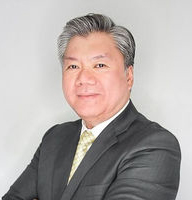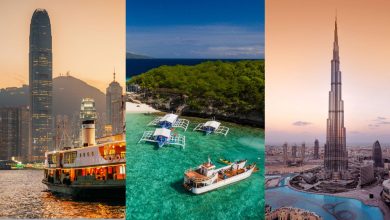Dubai: The lure of lavish lifestyle in the UAE could be tempting for many overseas Filipino workers (OFWs) especially during this time of the year when almost everyone equates new year with fancy dresses, new shoes and bags, latest gadgets, and the list goes on.
For the year 2020, however, Pinoy expatriates here want to take a sidestep in all this, as part of their New Year’s resolution.
In a straw poll conducted by The Filipino Times from December 3-18, covering 1,370 OFWs working in various sectors across the emirates, a striking 72 percent (986 respondents) said they are “serious” in shunning to splurge on expensive purchases during the holidays. Of this, 621 respondents see 2020 as an opportunity to change their old financial habits. Most of these Filipinos admitted to having spent half of their hard-earned money at least thrice in 2019. These OFWs are mostly in the mid-20s to the late 30s age-group and are not as overly saddled with financial obligations to an extended family back home.
Sounds classic? But one thing is for sure among the majority of the OFWs in the UAE–they are making big plans for the year ahead. In this multiple-choice poll of TFT, it was found that 4 out of 5 OFWs would want to have big fat savings. Of this, 3 out 5 OFWs have a solid plan on investing it in either building or purchasing their own home; while 1 in 5 shows having no clear or well-thought-out plans as to where he would spend it on.
Is the former only a fad that would eventually dwindle after the excitement of the holidays has worn off? Or is this just an arbitrary trend in the classic season for goal-making? Neither of these two, as related by property developers in the Philippines to TFT. Backing up their claims with data, the number of Pinoy expats in the UAE who invest money in real estate, houses or condo units, steadily grows year-on-year as sustained by three main factors.
Three major factors
Manuel Arbues II, Ayala Land International (ALI) Sales Inc.’s Regional Head for North America and the Middle East; and Miguel Bilan, Jr., International Sales & Operations Manager at Sta. Lucia Land Inc., attributed this growing appetite for property acquisition among OFWs to at least two major factors: one is the improving level of financial literacy developed through various advocacy groups in the UAE and amplified by an annual property event – the Philippine Property and Investment Exhibition organized by New Perspective Media Group.

“They have become financially literate, definitely,” said Arbues. He cited the sales at ALI’s subsidiary, Amaia Land, which covers the economic housing segment and have recently been shooting up starting in the second semester of the year.
“Yung nakita naming movement sa Amaia is not because OFWs are going for the less expensive but because they are now considering real estate development for rental purposes and for preparation for their retirement,” Arbues said.
The second major factor is the economy back home consistently growing on the back of OFW remittances which stood at $2.67 billion in Oct. 2019, according to the Central Bank of the Philippines; and the business process outsourcing (BPO) industry. Trade and Industry Secretary Ramon M. Lopez has himself noted that Philippine economy has for the past 15 quarters been hovering at a 6% growth rate.

Martin de Leon, AVP and head of Condo Division at Greenfield Development Corp. (GDC) said they have observed that the signs are there for the Philippines to remain an attractive spot for real estate investments in 2020.
“Prices are increasing, the demand is high, and the market is growing at a sustainable pace, which is predicted to remain the same for at least the coming two years,” he said.
De Leon said the key drivers are Business Process Outsourcing (BPO) from multinational companies; demand from Chinese investors and other foreigners; increased purchasing power among locals; increasingly more remittance from overseas, and emerging government infrastructure which will greatly benefit selected areas.
The third factor is the OFWs’ desire to take on a new life and enjoy the fruits of their labor as the straw poll revealed.

Bilan said OFWs are “driven by their aspirations to have a better life for their families, the reason why they are working abroad.”
“They don’t want their children to experience the difficulties they had experienced before that is why they work hard and try to save up for investments,” he said.
Property galore
If real property acquisition is to be used as a gauge, Filipinos in the UAE are the most financially literate among Philippine migrant workers across the world, according to major developers, citing doubling sales in 2019 and projections of a continuing upward trend in the coming year.
This increase in sales is also being attributed to the desire by OFWs to level up from being employees to entrepreneurs and enjoy a comfortable life through returns on investment.
Hence it comes as no surprise why property investment ranks high on OFWs’ “to-do list” for 2020, developers said.
“For the Middle East market, we grew by 82%, mostly coming from UAE. Number one growth ng Ayala Land ang UAE among all regions,” Arbues disclosed to The Filipino Times.
“Bilan, for his part said their company is likewise experiencing brisk sales. “We had a double figure-increase in the number of OFW investors in the UAE for 2019,” he said.




